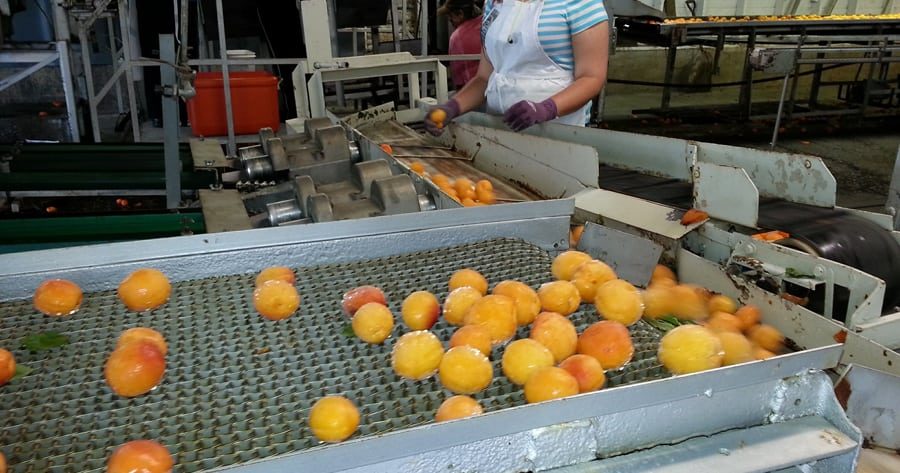
Home » Food processing jobs lead local manufacturing boon
Food processing jobs lead local manufacturing boon

June 15, 2017
By Robin Wojtanik
The Tri-Cities has seen the creation of thousands of new jobs in manufacturing, despite a loss of manufacturing jobs across the state.
Jobs in food processing led the way for the region, with gains in non-durable manufacturing up 2.9 percent between March 2016 and March 2017, which translates to about 2,400 new jobs, according to the Bureau of Labor Statistics.
Food processing puts more people to work in manufacturing than any other specialty in the Tri-Cities, with 68 percent of total manufacturing jobs connected to products like French fries, potato chips and carrots. Non-durable manufacturing, like metal and aerospace, lost 7,600 jobs statewide, or 4.8 percent, in the same period.
The success of food manufacturing in the Tri-Cities helps temper the 2.6 percent decrease in employment for overall manufacturing across Washington state.
“Just last year we had some layoffs in manufacturing in the first half of the year, and during the rest of the year, a couple changes in manufacturers’ operations compensated for all the losses we had from layoffs. And they added additional jobs in manufacturing, so that we added about 1,000 jobs overall for 2016, putting manufacturing as one of the leading industries for growth year over year,” said Ajsa Suljic, regional labor economist for the state Employment Security Department.
The region doesn’t rely heavily on manufacturing jobs as a driver of the economy as they make up less than four percent of total employment in the Tri-Cities, though it is growing, according to labor statistics.
Wages for food processing tend to be lower than those related to non-durable goods, which include fabricated metal, machinery and computer electronics companies, totaling roughly 1,500 workers.
Non-durable goods companies employ about 2,500 people, mostly in food processing. This figure also includes the manufacturing-only portion of the local wine industry, as other steps in winemaking are covered by different sectors, with the largest falling under agriculture. Manufacturing roles don’t just include hand packers, but also innovators and scientists to increase efficiency.
On average, a manufacturing job in the Tri-Cities pays slightly more annually than the average of all wages in the Tri-Cities, $53,537 compared to $51,676. The annual salary for a job in non-durable manufacturing for this region averages $69,036 versus $43,677 for a worker in non-durable manufacturing, like food processing, according to labor statistics.
The continued growth in manufacturing jobs in the Tri-Cities is mainly resource-based. The region’s close proximity to where crops are grown is a key to success. Most farms are within 50 miles of a processing facility, decreasing the distance needed to transport the potatoes that will become fries or chips.
Having other processing facilities already in the area continues to lure new companies to the region, as they offer varying types of manufacturing, from canning vegetables to dehydrating fruit.
“It gives a new manufacturer the opportunity to be where everything is available. You might have packaging suppliers here, transportation available, distributors, so it builds on itself and creates a cluster where everyone can succeed at the same time,” Suljic said.
If food processing is the backbone of manufacturing, French fries are the leader in the production, followed by potato chips. Fries don’t necessarily employ the most people in food processing, but they account for the greatest volume of production from the industry. The region is also a large volume processor of carrots, apples and peas. The added availability of cold storage has also increased the demand for food processing in the Tri-Cities.
The Tri-City manufacturing industry weathered the recession and expanded industry jobs by about 4 percent since 2003, according to labor statistics.
Statewide, the industry has not recovered from the jobs lost in the recession, mainly tied to a drop in durable manufacturing positions. In Benton and Franklin counties, manufacturing jobs increased during the recession. Manufacturing jobs tend to be stable, offer good benefits, and provide the opportunity for laddering, which can make the jobs consistent and desirable, Suljic said.
Local News Manufacturing
KEYWORDS june 2017




